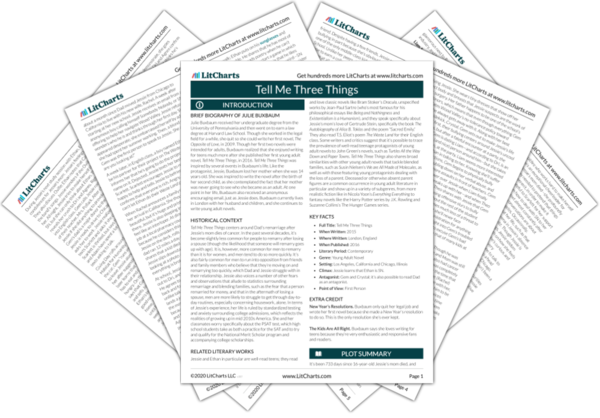Jessie and Ethan in particular are well-read teens; they read and love classic novels like Bram Stoker’s
Dracula, unspecified works by Jean-Paul Sartre (who’s most famous for his philosophical essays like
Being and Nothingness and
Existentialism is a Humanism), and they speak specifically about Jessie’s mom’s love of Gertrude Stein, specifically the book
The Autobiography of Alice B. Toklas and the poem “Sacred Emily.” They also read T.S. Eliot’s poem
The Waste Land for their English class. Some writers and critics suggest that it’s possible to trace the prevalence of well-read teenage protagonists of young adult novels to John Green’s novels, such as
Turtles All the Way Down and
Paper Towns.
Tell Me Three Things also shares broad similarities with other young adult novels that tackle blended families, such as Susin Nielsen’s
We are All Made of Molecules, as well as with those featuring young protagonists dealing with the loss of a parent. Deceased or otherwise absent parent figures are a common occurrence in young adult literature in particular and show up in a variety of subgenres, from more realistic fiction like in Nicola Yoon’s
Everything Everything to fantasy novels like the Harry Potter series by J.K. Rowling and Suzanne Collins’s The Hunger Games series.
